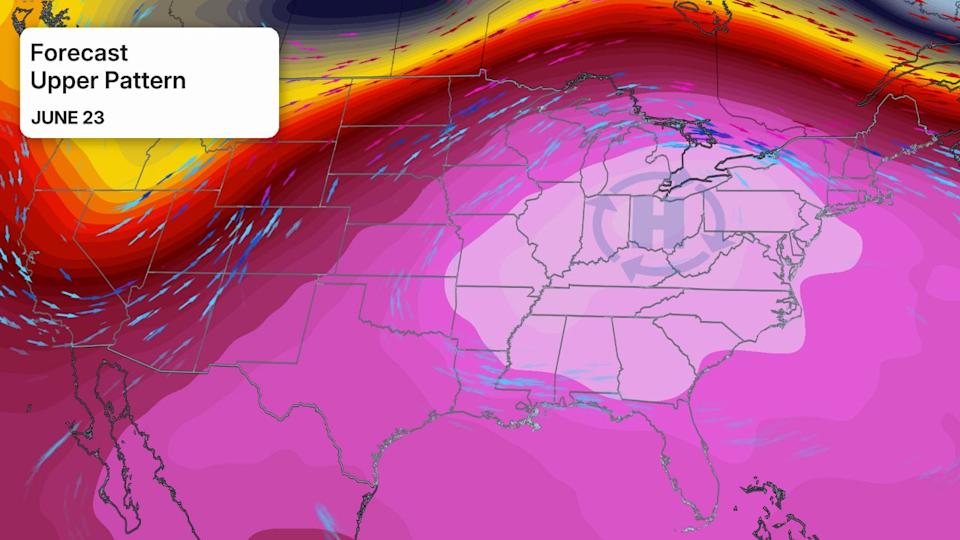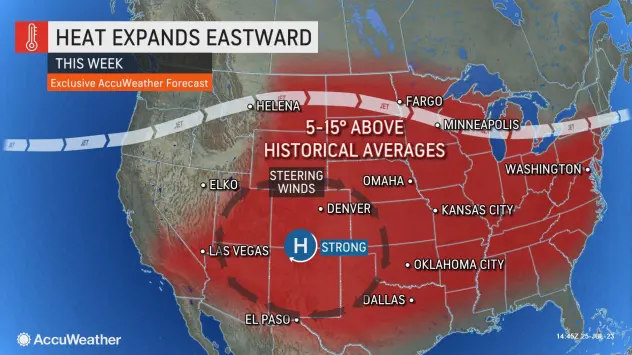A dangerous heat wave, potentially setting new records, is now smothering the Northeast and Midwest, placing millions under extreme-heat alerts. New York City, Philadelphia, Chicago and other large urban centers are readying themselves for days of blistering temperatures and stifling humidity that could be written into the region’s weather annals.
Meteorologists forecast an extended spell of severe heat, with what people actually feel-the heat index-soaring well into the triple digits once humidity is counted. This furnace-like air mass stems from a sprawling high-pressure ridge, colloquially dubbed a heat dome, which traps warmth near the surface and blocks the natural upward movement that usually cools the atmosphere.
Cities on Alert: Records in Jeopardy
From the Windy City to the Big Apple, urban centers are watching the forecast with rising worry. Chicago could grid off into the mid-nineties, and the humidity will inflate the heat index even higher. Philadelphia, already accustomed to muggy summers, stands ready to flirt with old records, likely logging several days above ninety degrees. New York City, which has logged a century mark in June only a handful of times, braces for actual temps near that threshold and a feels-like number that climbs sharply.
What makes the situation alarming is the sheer weight of this early-season wave. Models now suggest the furnace lasts for days, leaving little escape even after sunset; nighttime lows hover in the seventies. Such stubborn warmth rob- s the body of precious recovery time, driving up the odds of heat-related illness.

Understanding the Dangers of Extreme Heat
Warnings about extreme heat are not mere routine; they are lifesaving alerts. Heat remains the deadliest weather threat in the United States. Extended contact with steamy air and high humidity can trigger serious problems, including:
Heat Exhaustion: Watch for heavy sweating, pale skin, painful cramps, fatigue, dizziness, headache, nausea, or anything that feels like your body is about to faint.
Heat stroke occurs when the body rises above 104F; victims develop bright red, hot, and dry skin, fast pulse, confusion, or even loss of consciousness. Suspect it? Call 911 without delay.
Children, seniors, people with chronic illness, outdoor laborers, and households lacking air conditioning face the steepest danger.
Stay Safe: Essential Tips During an Extreme Heat Warning
As this record-breaking wave builds, we all must act ahead of symptoms:
Stay Hydrated-Drink cool water on the hour, even before thirst hits. Cut sugary, caffeinated, or alcoholic drinks, because each can pull moisture from the body.
Seek Air Conditioning or Cooling Centers-Spend hours in cooled spaces. If home units are absent, move to public cooling centers, libraries, or shopping malls.
Limit Outdoor Activity-Deferrunning, lifting, or long errands until after 4 PM. When outside, slip under shade or move indoors every few minutes.
Dress Appropriately-Choose light, loose, pale fabrics that breathe while dark, tight, or wet gear traps heat.
Never leave people or animals alone in a parked car: Temperatures inside a closed vehicle can climb to life-threatening levels in minutes, even on a day that feels mild.
Check on those most at risk: Call or stop by to see how older neighbors, relatives, or friends may be handling the heat.
Know the signs:
Learn the early symptoms of heat exhaustion and heat stroke so you can act quickly if someone shows them.
This record-breaking heat wave again warns us that climate change is reshaping everyday weather. Staying alert and taking simple steps can save lives and limit damage. Keep watching local news and weather updates for the latest details on extreme-heat alerts in your community.



